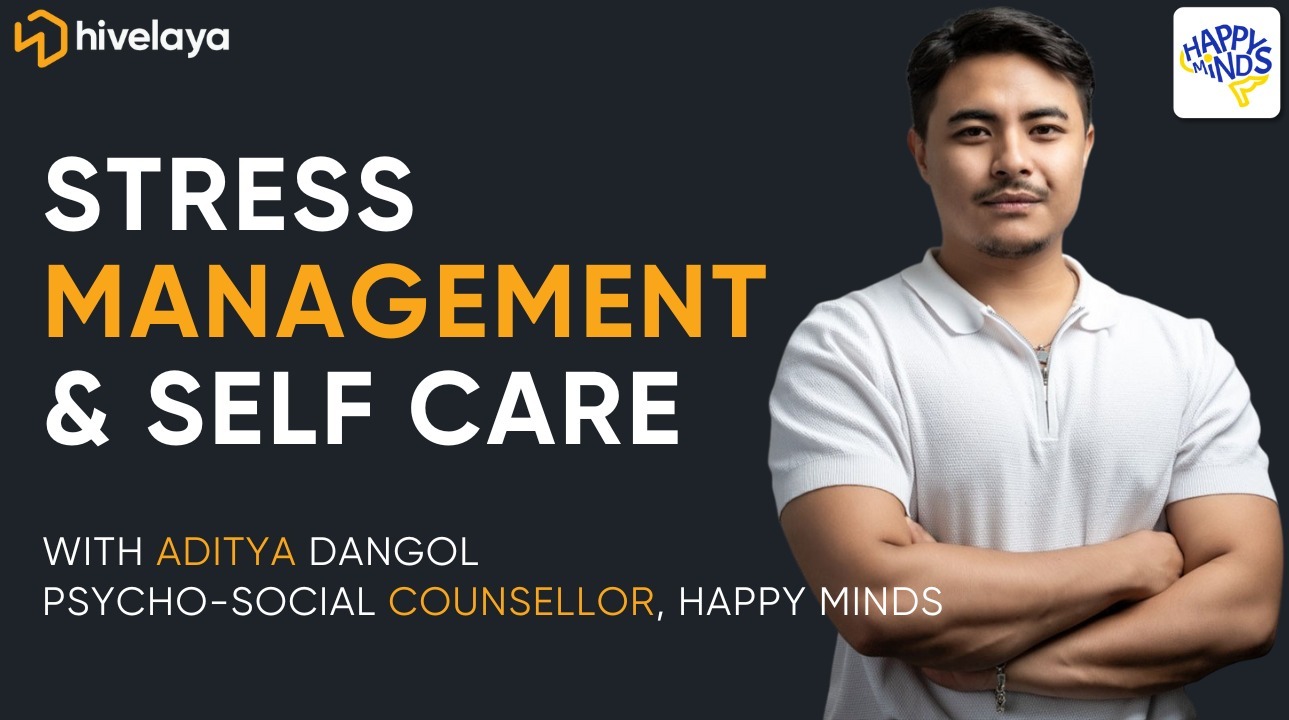The workshop then introduces the concept of stress through an open-ended discussion, prompting participants to share their thoughts on what stress means to them. This is followed by an exploration of the three primary perspectives on stress: the stressors (sources), the response to stress, and the process in between. A clear definition of stress is provided, explaining that stress occurs when there is a perceived lack of resources to meet demand, whether those resources are time, finances, cognitive abilities, self-esteem, or personal expectations.
Participants then learn about the dual nature of stress—both good (eustress) and bad (distress). A formula is introduced to differentiate between these types of stress, illustrating how stress that subsides over time can be beneficial, leading to productivity and a sense of accomplishment, whereas persistent stress can be harmful.
The workshop delves into the various ways stress manifests in individuals, affecting their physical health, cognition (thoughts), behaviors, and emotions. Participants first reflect on their personal experiences before engaging in a guided discussion to identify common symptoms and effects of stress.
A key component of the workshop is understanding why stress triggers strong reactions in the body and mind. Participants explore the role of the nervous system in perceiving stressors as threats, leading to fight, flight, or freeze responses. This discussion helps explain common coping behaviors such as irritability, aggression, mental blankness, escapism through screens or substances, and other stress responses.
The course also addresses the various causes of stress, ranging from daily responsibilities to significant life events such as grief, loss, and unresolved childhood trauma. By recognizing these triggers, participants can gain insight into their stressors and develop healthier coping strategies.
The workshop then introduces various self-care strategies that individuals can incorporate into their daily routines. Participants reflect on their existing stress management techniques and explore additional strategies that can help them cope more effectively. A strong emphasis is placed on physical activity, highlighting studies that show how movement, such as walking, exercise, and yoga, significantly enhances stress management.
Another crucial aspect of the workshop is the importance of social support systems. Participants create a “Me-Map,” identifying the people in their lives who provide emotional and practical support. This activity reinforces the value of connections in reducing stress and improving overall well-being.
The session then transitions into mindfulness and grounding exercises, where participants engage their five senses to become fully present in the moment. These techniques help reduce anxiety and stress, fostering a sense of calm and stability.
The workshop concludes with the creation of a personalized self-care kit. Each participant selects one activity or object for each of the five senses that helps uplift their mood and promote relaxation. This self-care kit serves as a tangible tool for ongoing stress management beyond the workshop.
